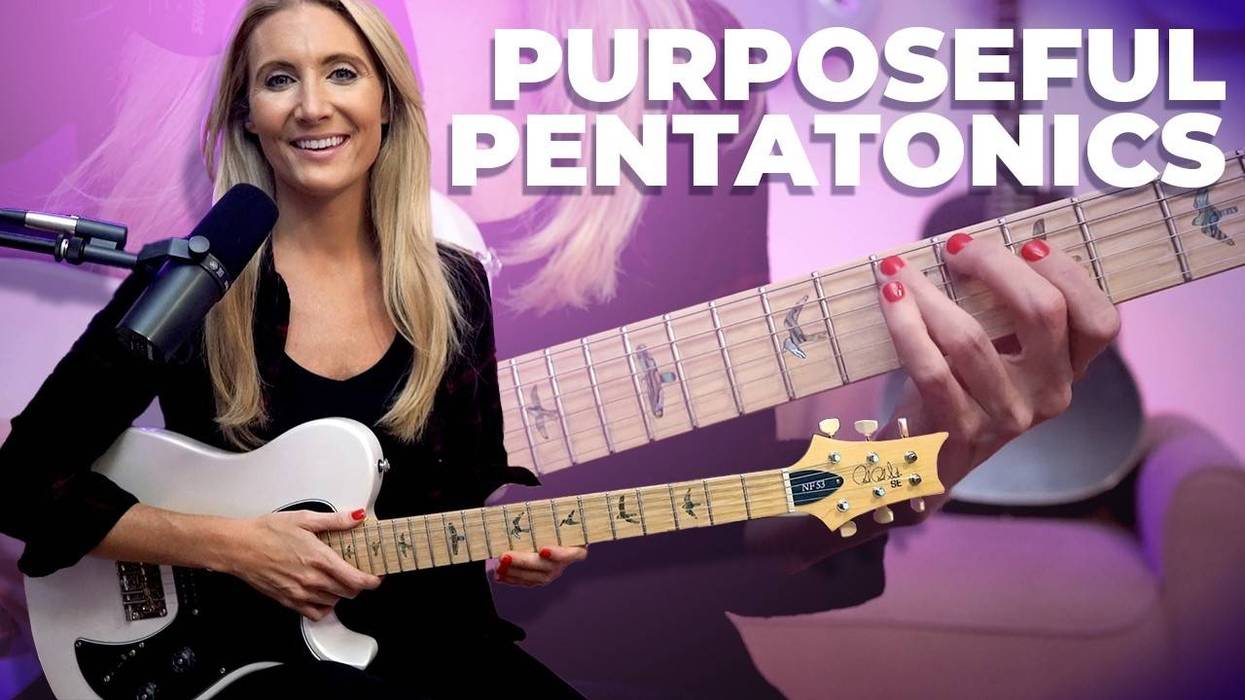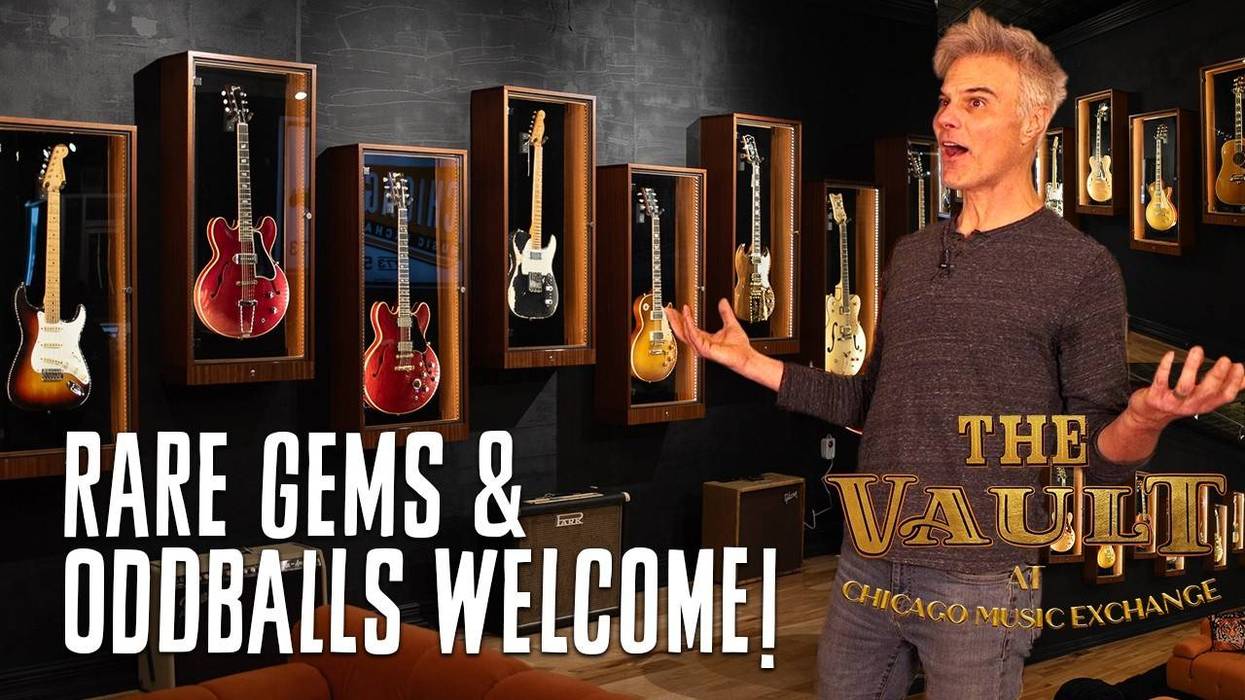Charlie Haden passed away on July 11, 2014. He was one of the most influential bass players of his generation—a tribe that includes Dave Holland and Stanley Clarke. Thinking of Haden in terms of his contemporaries may be misleading, though, because he never sounded like them or anyone else. Sure, he could walk four-to-the-bar jazz lines when the music required it—that’s part of the job description. But what was so special about Haden’s way with the instrument was how freely he could play—stretching his phrases, emphasizing melodic depth, all while holding down the fort. Haden was also a marvelous composer and respected teacher, having helped to launch the Jazz Studies program at California Institute of the Arts (aka CalArts) in the early ’80s.
Haden’s playing has been called “lyrical” so often that it can start to feel cliché, but it’s hard to think of a more apt descriptor. In his improvisations, Haden often seemed to be reciting a poem or singing a spiritual on his instrument, one fervent phrase at a time. Words, however, can only go so far to describe the singular musician that Haden was. If you’ve never heard him—or, even if you have—there’s no better time than right now to give your ears over to some of his work as a fearless bandleader and collaborator. There, in the music—that’s where his story is.
For a chronological sampling of Haden’s career, check out his recordings with saxophonist Ornette Coleman’s quartet. They were some of the bassist’s earliest professional sessions. Coleman’s 1959 album The Shape of Jazz to Come is a great example of how Haden’s earthy tone could make even the most freewheeling music feel grounded. Haden continued to perform and record with Coleman throughout the 1960s.
In the late 1960s, Haden formed the Liberation Music Orchestra, which released a handful of titles between ’69 and ’05, and had a malleable lineup that variously included guitarists Mick Goodrick, Steve Cardenas, and others. Though similar in instrumentation to a classic big band (it featured several woodwind and brass players), this ensemble was no swing-era throwback. The LMO was always more experimental with compositions and musical textures. Pianist/composer/arranger Carla Bley was also a major contributor. “Song for Ché,” from the group’s self-titled 1969 album, is a nine-and-a-half-minute tour de force.
Six-string icon Pat Metheny recorded a duo album with Haden entitled Beyond the Missouri Sky, with one of its highlights being the prayer-like “First Song,” an original tune that Haden recorded many times throughout his career. Haden also played on a pair of recordings with John Scofield, with Time on My Hands showcasing the bassist’s hard-swinging side. On “Wabash III” and “Farmacology,” you can hear how Haden’s sure-handedness impelled the guitarist to keep reaching for higher heights.
Scofield reflects fondly on Haden’s musicality. “Charlie was a great example for me of how to sound soulful on a string instrument,” he says. “His personal style of accompaniment drew from the roots of the jazz tradition. I remember him saying how much he loved [bassist] Wellman Braud from Duke Ellington’s band. At the same time, he invented the most compelling way to play bass in a free-jazz group. He really knew folk music and old country stuff, and he weaved those into jazz, too. Charlie seemed to stand for creativity and individuality, and helped many of us see the way.”
In the mid ’80s, Haden started a new group called Charlie Haden Quartet West. It featured saxophonist Ernie Watts, pianist Alan Broadbent, and drummer Billy Higgins. On their self-titled 1987 debut, they put their sophisticated spin on the classic jazz ballad “Body and Soul.” Haden’s solo here is remarkable. Another Quartet highlight is “The Left Hand of God”—a bass feature from Now Is the Hour, on which Haden is backed by a string orchestra. His playing here is beguiling, and the tone he pulled from his instrument is muscular, yet light enough to project through the rich arrangement.
The Montreal Jazz Festival paid tribute to Haden in 1989, inviting him to perform eight nights in a row in different musical pairings. He played with the Libration Music Orchestra, Brazilian guitarist/pianist Egberto Gismonti, in a trio with drummer Al Foster and saxophonist Joe Henderson, and with other jazz luminaries. Each concert was recorded, and these have been released—individually—as the Montreal Tapes series.
Though mostly associated with jazz, Haden wasn’t a purist. He recorded with singer Rickie Lee Jones on her 1991 album Pop Pop. A few years later, he teamed up with pianist Hank Jones to record Steal Away, an album of traditional hymns and spirituals. In 2001, he recorded an album called Nocturne with Cuban pianist Gonzalo Rubalcaba, and it won a Grammy award for Best Latin Jazz Album in 2002. You can hear also Haden on drummer Ringo Starr’s Ringo Rama and on actor/singer Robert Downey Jr.’s The Futurist. Whatever the setting, Haden’s musicality shone through.
Scofield sums up the feelings of both Haden’s legions of fans and his contemporaries when he says simply, “Charlie was one of the few great stylists in jazz. He will be sorely missed.”
















![Rig Rundown: Russian Circles’ Mike Sullivan [2025]](https://www.premierguitar.com/media-library/youtube.jpg?id=62303631&width=1245&height=700&quality=70&coordinates=0%2C0%2C0%2C0)
















![Rig Rundown: AFI [2025]](https://www.premierguitar.com/media-library/youtube.jpg?id=62064741&width=1245&height=700&quality=70&coordinates=0%2C0%2C0%2C0)











